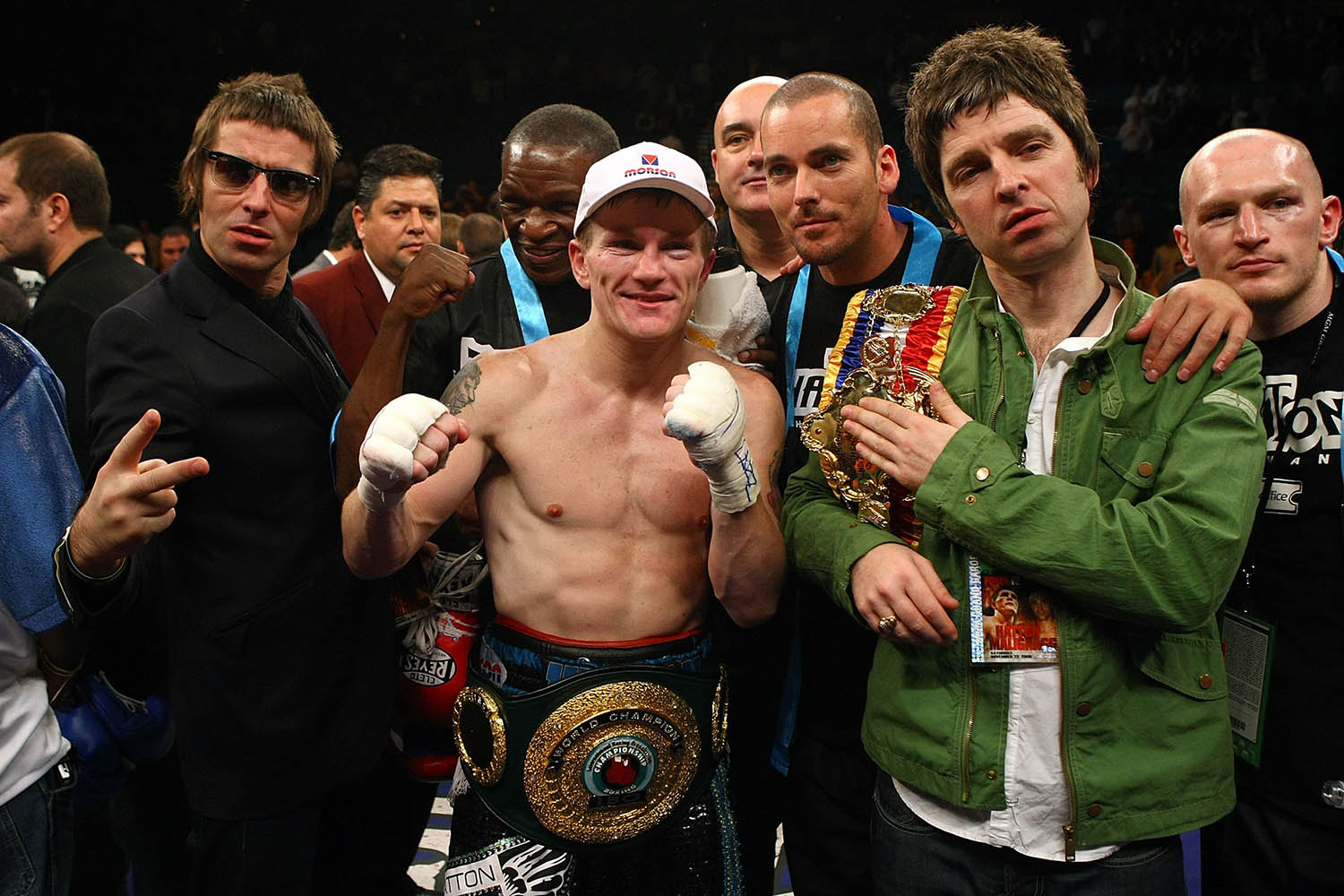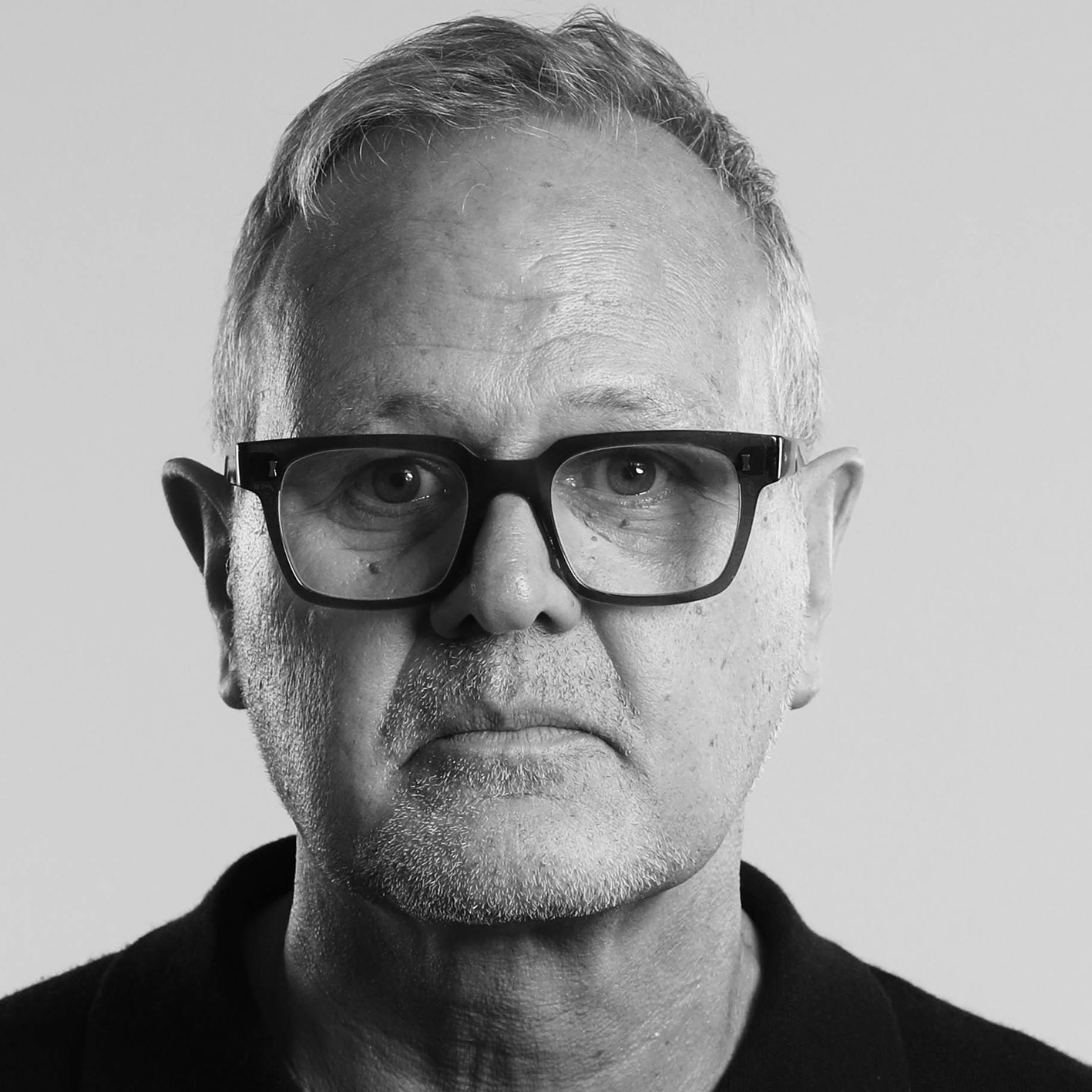At 3am one mad night in Manchester in June 2005, a world title fight was approaching its 12th round when Ricky Hatton heard his trainer Billy Graham say: “We need this last round to be sure of winning. Can you do it? Have you got it in you?” Hatton was on his stool looking across to the reigning champion Kostya Tszyu.
“Fucking right I’ve got it in me,” he said. But there was a commotion in Tszyu’s corner. The champion’s trainer Johnny Lewis was refusing to let him go back out for the final round. Hatton just about had the energy to raise a sky-blue boxing glove in triumph. Sky blue, because he was every bit as devoted to Manchester City as the Gallagher brothers, Noel and Liam, who once carried his belts into the ring. Before City and United became rivals in the way they are now, Hatton was Manchester’s municipal gladiator: the city’s Everyman.
At 3.10am on that Sunday morning he was anointed world junior welterweight champion. The next day, on minimal sleep, he had a pressing engagement at the New Inn pub near Hyde, where he was a devotee of the Sunday ‘Shit Shirt Competition.’
Before he left the MEN Arena he joked: “I’ve missed my two friends, Mr Guinness and Mr Dom Perignon,” while 20,000 weaved deliriously towards dawn.
He told us too that night: “I’m a Mancunian born and bred, and I really feel I’m no different to the man in the crowd. I think that’s why I get the respect I do.”Beating Tszyu was the zenith of Hatton’s boxing career. He was 43-0 when his all-action style found its ceiling, against Floyd Mayweather and Manny Pacquiao.
From there, Hatton’s constant reference to booze and binges acquired a darker meaning, descending into depression and shame about the anti-climaxes against Mayweather and Pacquiao (not that they were ‘shameful’ – but only the way he saw them is what matters here).
When somebody passes away, one of the first thoughts is often: “I wish he or she had been here to see this.”
With Hatton, that feeling arrived on the day his death was announced. The same afternoon, Pep Guardiola gazed up at a giant screen inside the Etihad Stadium showing Hatton and his lifespan: 1978-2025. Guardiola’s eyes were dilated with shock and sorrow. City beat United 3-0: a result Hatton would have loved.
“One hundred percent I had extra motivation going into the game,” City’s Phil Foden said. “It was for him and his family and for the people suffering right now.”
Hatton, who was preparing for another ‘comeback,’ will miss a second vibrant spectacle this weekend when City go to Arsenal.
Newsletters
Choose the newsletters you want to receive
View more
For information about how The Observer protects your data, read our Privacy Policy
His fights were Man City love-ins. He strode out to the City anthem ‘Blue Moon.’ He wore City-styled boxing shorts and sky-blue gloves. In 2008 he fought Juan Lazcano at the Etihad Stadium.
But there was more to it than one-club tribalism. Hatton’s popularity in Manchester spoke of an affinity for particular values: underdoggery, relatability and rootedness. “My proudest achievement was the fanbase I was able to have. I was just one of the boys, just one of the lads,” he said.
“People in the stands could relate to me. The fans could see me as one of them.” Sometimes that boast turns hollow, as the star grows weary of everyone wanting a piece of him. All who approached Hatton in public spaces started out thinking they already knew him, could call him a mate. They read about his suffering but couldn’t see it. As the lad “from the council estate who made it to Vegas,” as one former fighter called him, Hatton connected all the points of an older Manchester, from the city’s working-class roots through to boxing and football.
He paraded those identities around the world, especially in Las Vegas, where City-attired hordes sang ‘there’s only one Ricky Hatton’ day and night even as Mayweather (in 2007) and Pacquiao (2009) crushed their dreams.
He had the biggest and most delirious following of any British fighter bar, perhaps, Barry McGuigan, who achieved the impossible by uniting unionists and republicans in Northern Ireland – briefly, anyway. Joe Calzaghe was big in south Wales, John Conteh revered in Liverpool and Frank Bruno popular in London, but none could match Hatton’s profile as the face of a community, a culture, a spirit.
In November 2012 I went to interview him before an earlier comeback. He talked of blackouts from drink and drugs and paralysing regret about his defeats.
“My girlfriend had to take a knife off me several times,” he said. “I can’t blame it on me coming home drunk. It was happening when I was sober, drunk, whatever.”
Hatton was 34 and less comfortable with adulation because some of it tormented him: “People are saying – you had a good career, Ricky, you don’t need to be ashamed of it because you got beat by Mayweather and Pacquiao. People say – Ricky you’re a legend. But I feel a failure because of what I did in that time gap [after his retirement].
“People used to look at me and say: ‘Ricky, good kid, no airs, no graces, not flash, what you see is what you get, and what a fighter.’ That’s how they used to look at me. Call me paranoid, but I was thinking: how are they looking at me now? Fat bloke, used to be world champion? That’s what the fellah on my shoulder was telling me.”
The ‘fellah on the shoulder’ was destructive – a trickster. More trustworthy was what everyone at the Man City-Man Utd game was telling him, and what people will feel at Arsenal versus City. But he’ll never hear it now.
Photograph by John Gichigi/Getty Images



